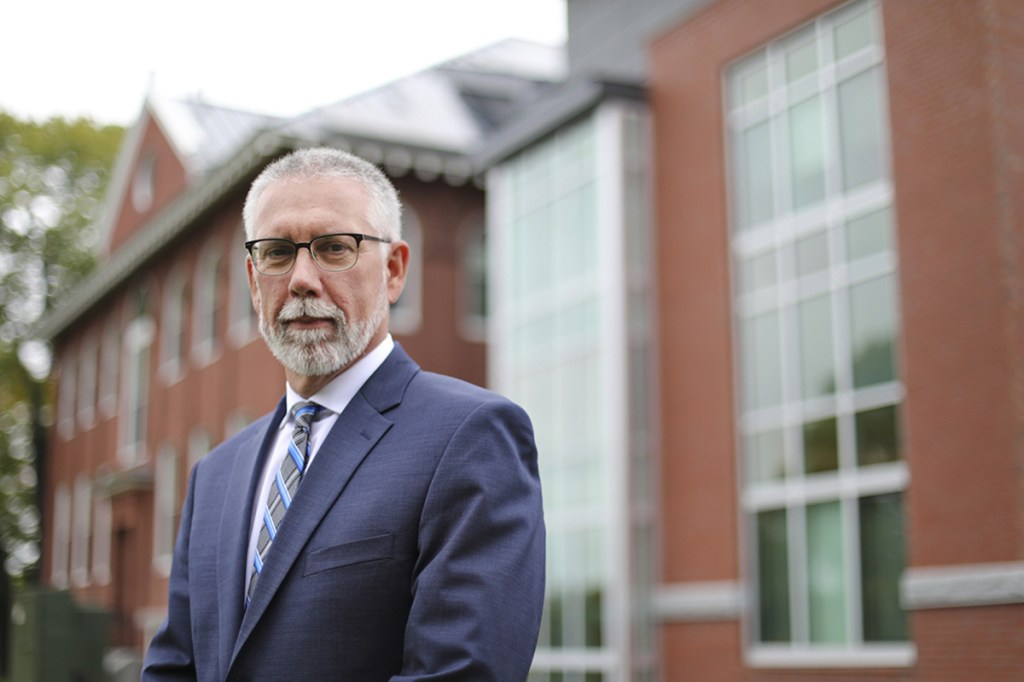Name: Rob Moody
Age: 53
Title: President and executive director
Organization: Good Will-Hinckley, Fairfield
About: Provides housing, education and services to at-risk youth.
Website: gwh.org
What’s your biggest challenge right now?
The tight labor market. We are expanding programs, so finding enough staff to meet all the different shifts is a challenge. We have kids 24/7. We need experts in the behavioral health field. We have a day treatment school, so we need special education teachers. It’s a challenge to find that group. It’s hard to find good ones. We want to attract people who want to deal with kids who need a helping hand — empathetic, reliable, caring people.
We have eight or nine openings right now. Residential care is a high burn-out occupation. It’s not an easy job.
What’s the best advice you have ever received?
To love what I do — just love it. The focus on doing what I am passionate about and truly makes me happy attracts positivity and surrounds me with positive people.
Also, to not be afraid of failure. I have failed at many things, but I have bounced back. That was advice given from my parents, Ronald and the late Sheila Moody. They demonstrated that in their lives. They both worked in education their whole lives. My mom was a cook at the school and my dad was the principal at the school.
What skill do you value the most as an employer?
Empathy. It’s important to have that, a kind touch when dealing with our youth. That goes a long way to gain their trust and respect from our youth.
A lot of staff that come here are empathetic and kind. It wears on you when you have kids that are tougher to deal with. Staff that’s empathetic can look past it and know the kids are not mad at you. They are always there to support them and help them out.
They can learn it; a lot come with it.
It starts from me to the people who drive the bus and wash the floor. They are all here to have the chance to interact with the kids.
What’s your biggest fear right now?
We’re afraid we’re going to fail.
We take on big tasks in non-profits, and sometimes the task is too large. We may not feel fully equipped to deal with it.
Sometimes you have to take a full time out, readjust and come at it a different way with different resources. Sometimes, you have to fail to get where you want to be.
We’ve had some failure right here. In 2008-09, we suspended all the residential programs and went to kinship care (where children are raised by extended family members such as grandparents). The state stopped sending kids to group homes. It wasn’t just us. Other facilities had to change gear.
Our goal is to get the kids back to home, to be with family if there’s a home that’s appropriate for them.
It’s a challenge bringing (residential care) back. Kids have changed in 10 years, and there have been some failures.
Where will your organization be in five years?
We want to be serving more kids and families and increase the number of students.
We want to open more cottages and have more residential treatment for kids.
We want to have a company that is active, with greenhouses, trails and farming.
And we want to have kids transition back home.
It sounds corny, but we want to make a difference, have kids heal and become positive and productive citizens.
Send questions/comments to the editors.




Comments are no longer available on this story